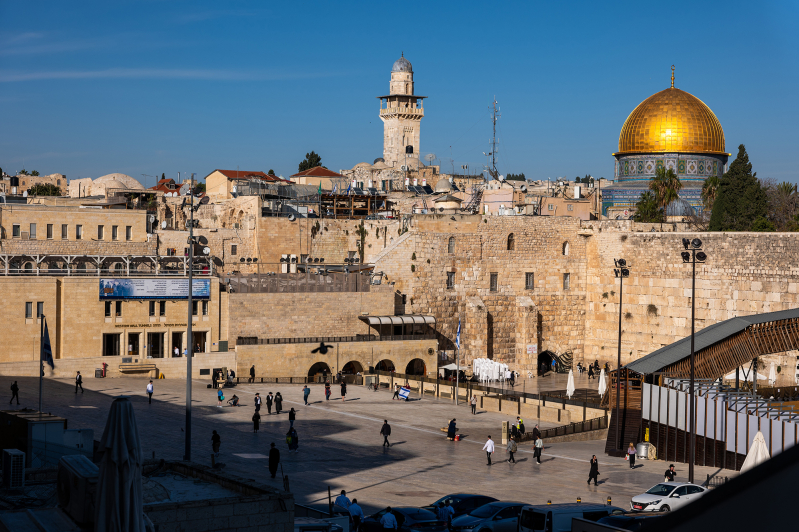
This year’s International Day of Prayer (IDOP) for the persecuted church comes as worldwide tensions have turned up pressure on Christians, challenging the global Body of Christ to keep pace in aid and supplication.
As Christians are focused on IDOP prayer for the persecuted on both Sunday (Nov. 3) and Nov. 10, tensions that have spiked in the Middle East since the Oct. 7, 2023 Hamas terror attack on Israel have inflamed Islamic extremist sentiment against Christ followers, said an official with a Swiss-based aid agency.
“Since Oct. 7, 2023, the whole Middle East is on intense fire and might explode any time,” said the official, whose identity is withheld for security purposes. “It seems that all political, social and human rights achievements in the direction of a possible reconciliation between major foes – Saudi-Iran, or the Israel-Arab world – are now very far way. This of course has direct implications for our persecuted brothers and sisters as they are the most vulnerable and often blamed as being enemies of state.”
The historical suffering of Christians who have converted from Islam in the region has reached a new level, he said.
“All accomplished liberal thinking and religious tolerance in the Middle East are now departing, leaving the battleground for fanatism and Islamic radicalization to take over,” the official said.
His agency recently provided aid to a leader of a group of converts from Islam in the Palestinian West Bank. The leader is from a prominent Muslim family, and his sister’s husband, a member of the extremist Salafi branch of Islam, recently discovered he had become follower of Christ and reported him as an “unbeliever” to his relatives.
The leader’s prominent Muslim father threw him and his family out of their house.
“He then had to flee and hide with his wife and son in secret place for his security as the whole situation around Oct. 7th got heated up, and people became more radical,” the official said. “With the funds we received, we helped him to rent a hide-out apartment, and provided some living expenses for his family.”
Tensions have long hit Egypt’s borders. Israel’s military campaign against Hamas has divided opinion among church members in Egypt who are also pining under the devaluation of their currency and rising prices.
Atop these difficulties, persecution remains the main challenge for Muslim-background believers like Sara (name changed) – an educated person who loves reading and research. When began seeking answers about Islam from her husband and some Islamic experts, they couldn’t give her satisfying answers.
“It is considered as blasphemy to ask certain questions, and so her husband and other people around her reacted alertly,” the aid agency official said. “However, Sara felt a strong urge to find the truth and continued asking questions.”
She began reading Christian books until she concluded that she wanted to follow Christ, he said.
“Her husband discovered a change in her and argued with her until he found out that she became a Christian,” he said. “Sara was pregnant at that time. Her husband beat her so badly that she had to be hospitalized and lost her baby.”
When she was able to return home, her husband reported her to police. Sara was imprisoned on false charges.
“After some years she was released but was still punished with having to go to the police station every week, where she had to clean the toilets and sit there for hours,” the worker said. “Our local partner heard of her situation and helped her legally. He also helped Sara to find a safe place to stay and a new place to work.”
Persecuted Christians are receiving both aid and spiritual care to strengthen their faith in the face of suffering. In Africa, the Islamic extremist terrorism in Nigeria that has displaced both Muslims and Christians for more than a decade drove one woman’s family to a camp for the internally displaced, where she came to faith in Christ under the teaching of the Swiss agency’s aid partner.
The suffering she endured in four years of living in and out of the camp had left her cynical and prone to lying and cheating, the official said.
“There was no visible change in her behavior – it required a lot of patience, love and wisdom from our partner and her team, and it was a lot of work for her, but over time she grew out of her bad habits,” the worker said. “Through the teachings, the Bible study, the coaching and prayer, she experienced the love of God and discovered what it means to follow Jesus.”
She opened her heart so the Lord could transform and heal her, Sara said.
“God has given me the biggest gift of my life,” she told aid workers. “He removed me from darkness to light, from nobody to becoming somebody.”
The prayer and aid that persecuted Christians receive often requires sustained commitment. In Laos, village authorities opposed to 10 families leaving their ancestral religion for Christ recently drove them out of the community into the wilderness.
They were left about eight miles away, without homes, farmland, food and schooling for their children.
“We worked closely with the local church to help them to find land for these 10 families to build a simple house to live in, and our team helped them to build the well for them to have water to drink, and a tile roof for their house,” the aid official said. “We continue to work with the local church to have worship every Sunday in their house church, and we provide continuous support for their livelihood development.”
Aid group Christians in Crisis has compiled a helpful list of aid agency resources and other materials for how to pray for and help persecuted Christians. Morning Star News also lists aid and advocacy groups that can provide assistance to the persecuted.





